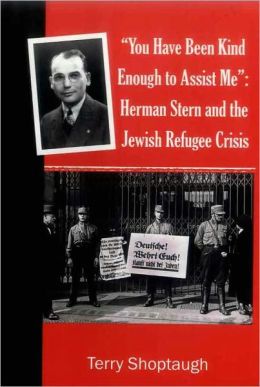From My Bookshelf: Biography of the Heroic Herman Stern
 As mentioned on my other blog (Practicing Writing), I recently had the opportunity to speak about Quiet Americans with a group of readers at New York’s Museum of Jewish Heritage. Following our meeting, we toured the museum’s new exhibit, “Against the Odds: American Jews and the Rescue of Europe’s Refugees, 1933-1941.”
As mentioned on my other blog (Practicing Writing), I recently had the opportunity to speak about Quiet Americans with a group of readers at New York’s Museum of Jewish Heritage. Following our meeting, we toured the museum’s new exhibit, “Against the Odds: American Jews and the Rescue of Europe’s Refugees, 1933-1941.”
I found the exhibit fascinating and returned another day to explore it more carefully. I also took notes. I was particularly captivated by the exhibit’s introduction to Herman Stern, a German-born Jew who immigrated to the U.S. in 1903. He was 16 at the time. Subsequently, Stern became a successful businessman in North Dakota. And from North Dakota, he managed to help more than 100 Jews escape from Nazi Europe.
I wanted to know more details than the exhibit provided, so I put my research skills to work. Soon enough, I located a biography of Stern in a local college library: Terry Shoptaugh’s “You Have Been Kind Enough to Assist Me”: Herman Stern and the Jewish Refugee Crisis, published in 2008 by the Institute for Regional Studies at North Dakota State University. (more…)
